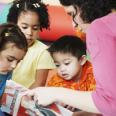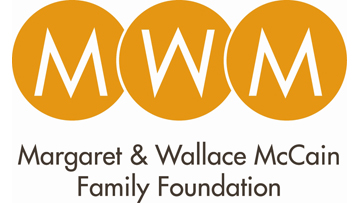Important goals of preschool programs are to help children acquire social skills and learning-related skills. Although beneficial for all children, these programs are especially important for children in disadvantaged groups, guiding them toward healthier development and giving them the tools they need before school entry.
Synthesis PDF Complete topic PDFSynthesis
How important is it?
Preschool programs provide early childhood education and care for children from various cultural and socioeconomic backgrounds in the years prior to their entry into Grade 1. Settings typically include schools, nursery schools, childcare centres and private homes. Since the middle of the 20th century, preschool programs have been increasingly widespread given the recognition of the importance of learning during early childhood when brain development is very rapid. One of the important functions of preschool programs is to help children acquire learning-related skills, such as the ability to express thoughts, adapt behaviours to situational demands, control impulsivity, show curiosity, remain concentrated and be socially competent. As such, school readiness is not only about teaching children basic language and mathematics skills, but is also about promoting self-regulation. Although beneficial for all children, these early childhood learning opportunities are especially important for children in disadvantaged groups as they play a critical role in reducing the impact of negative early experiences and in redirecting their development into a more productive trajectory. Accordingly, preschool programs can help to reduce the educational gap between children from vulnerable and more affluent families.
What do we know?
Several cognitive and socio-emotional benefits are associated with participation in preschool programs. Not only do they tend to increase children’s intellectual abilities, positive social behaviours, school commitment, and their likelihood of graduating from high school, but they also lower children’s likelihood of repeating a grade and of engaging in antisocial behaviours during their adolescence. These long-lasting positive impacts are increasingly recognized across both developed and developing countries (e.g., Bangladesh, Uruguay), and are mostly found in high-quality preschool programs characterized by two critical components: a) an effective curriculum (i.e., the content of what is taught to children) and b) a positive classroom environment that increases children’s extrinsic motivation to learn. Curriculum is central to supporting and strengthening children’s learning and development. Yet, because children’s academic functioning interacts with other factors (e.g., children’s temperament, family background and cultural tradition), preschool programs that rely on custom-designed curriculum tend to provide better outcomes as they integrate different types of approaches and take into account children’s emerging aptitudes. Along the same lines, learning is fostered in an environment characterized by positive student-interactions. When children feel competent, identify with their teacher and receive appropriate feedback from them, they tend to be more motivated to learn.
Examples of preschool programs that are effective at promoting long-lasting benefits include Head Start, PATHS and Tools, among others. The Program for Alternative Thinking Strategies (PATHS) focuses on promoting self-regulation in children by a) establishing a positive classroom environment with rules and routines; b) teaching children ways to self-soothe, cool-down, and problem solve; and c) modelling prosocial behaviours (e.g., helping, sharing and turn-taking). Similarly, the Tools of the Mind (Tools) is a preschool program intended to promote academic functioning and self-regulation among children from vulnerable families by emphasizing problem solving in small groups, peer collaboration in play, social rules through memory aids and sociodramatic play.
What can be done?
To advance children’s development, preschool programs should promote learning-related strategies, rely on an effective curriculum and be comprised of qualified preschool teachers. Several educational strategies can be implemented within preschool programs to promote children’s learning-related skills. For example, in order to bridge the gap between other- and self-regulation, children are encouraged to use private speech to verbalize their objectives and to evaluate their performance. It is also recommended that teachers model a few situations that involve self-regulation (e.g., looking away from an attractive reward, holding hands under the table) and provide memory aids to symbolize social rules. Furthermore, a useful strategy to promote creativity, comprehension and peer cooperation is to engage children in collaborative play, problem-solving activities, pretend play and sociodramatic play. Pretend play allows children to negotiate what they have to do to coordinate their roles and make choices. Similarly, sociodramatic play helps children to imagine other’s state of mind and to display different emotions as they are switching characters’ roles. Overall, effective educational strategies are required in early education programs to promote children’s emotional, behavioural and attention self-regulation.
In addition to emphasize learning-related skills, high-quality preschool programs should have a good curriculum.Itmust be structured enough, while giving enough flexibility to allow for the different needs of children and their families. Generally, curricula are most effective when a) children are active and cognitively engaged in their learning; b) instructional goals are clear; c) teachers have positive and meaningful interactions with students, in turn allowing them to track children’ progress and make the necessary changes; d) what is taught builds on children’s prior learning; and e) it is comprehensive.
Finally, preschool teachers should receive an adequate training to become sensitive to children’s needs, rules and routines and to the socio-emotional climate. As part of their training, they should develop the capacity to contribute to children’s cognitive and social development and to reach out to parents to make them full partners of children’s early education.
Discover more

What are the main functions of preschool programs?
Preschool programs provide early childhood education and care for children, and help them develop a range of skills that make them ready to learn when they start school, such as:
Social skills: the ability to empathize and interact successfully with their peer group, and also relate easily to adults.
Language skills: the ability to have adequate language skills in order to benefit from experiences facilitating their cognitive, educational and social development.
Executive function skills: the ability to hold and manipulate information in the brain, plan and regulate one’s behaviour, problem-solve, and be creative.
Emotional self-regulation skills: the ability to adapt behaviours depending on the situation, to control impulses and to shift attention.
Self-regulation in learning skills: the ability to postpone immediate satisfaction to attain long-term goals, sustain attention, be persistent, and remain concentrated.
Preschool programs are particularly successful in giving children from vulnerable families a boost, putting them on even footing with more affluent families as they prepare to start school.
Publications
Preschool and Learning-Related Skills
Preschool Programs: Effective Curricula
Protective Role of Executive Function Skills in High-Risk Environments
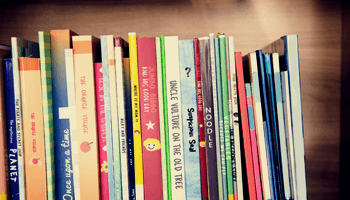
Resources and bulletins
The Encyclopedia also recommends...
Early Childhood Education Report 2014: It's Time for Preschool
November 2014
View related topics
School readiness
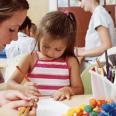
Head Start policy
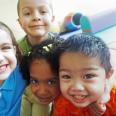
Child care – Early childhood education and care
